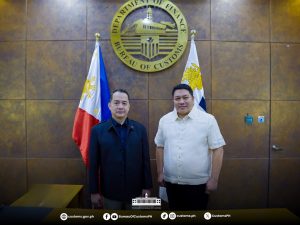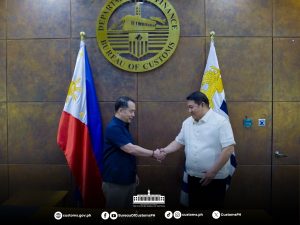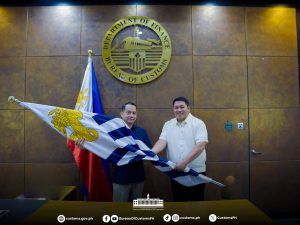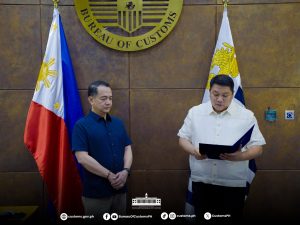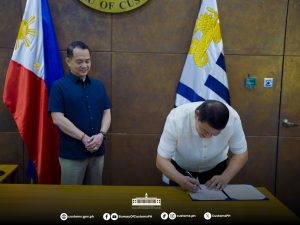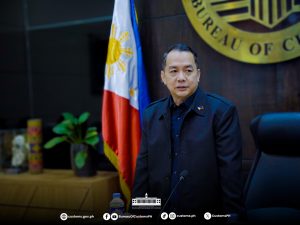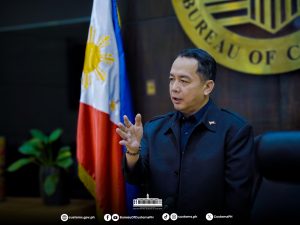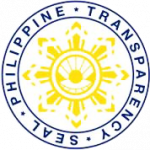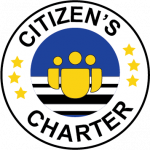- GOVPH
- About BOC
- Issuances
- Aduana Library
- Memoranda
- Memoranda for Reference Values
- Customs Administrative Order (CAO)
- Customs Administrative Order (CAO) 2025
- CUSTOMS ADMINISTRATIVE ORDER (CAO) 2024
- Customs Administrative Order (CAO) 2023
- Customs Administrative Order (CAO) 2022
- Customs Administrative Order (CAO) 2021
- Customs Administrative Order (CAO) 2020
- Customs Administrative Order (CAO) 2019
- Customs Administrative Order (CAO) 2018 and Older
- Customs Memorandum Order (CMO)
- Customs Memorandum Circular (CMC)
- Customs Memorandum Circular (CMC) 2025
- Customs Memorandum Circular (CMC) 2024
- Customs Memorandum Circular (CMC) 2023
- Customs Memorandum Circular (CMC) 2022
- Customs Memorandum Circular (CMC) 2021
- Customs Memorandum Circular (CMC) 2020
- Customs Memorandum Circular (CMC) 2019
- Customs Memorandum Circular (CMC) 2018 and Older
- Customs Special Order (CSO)
- Custom Training Circular (CTC)
- Joint Memorandum Orders (JMO)
- Trade
- News Room
- Port Updates
- HR Corner
- Quicklinks
- Infographics
- Bureau of Customs Webinar
- Auction and Sales
- Bid Opportunities
- Invitation to Bid / Request for Quotation / Invitation for Negotiated Procurement / Notice to Conduct Direct Contracting – 2023
- Invitation to Bid / Request for Quotation / Invitation for Negotiated Procurement / Notice to Conduct Direct Contracting – 2022
- Invitation to Bid / Request for Quotation / Invitation for Negotiated Procurement / Notice to Conduct Direct Contracting – 2021
- Invitation to Bid / Request for Quotation / Invitation for Negotiated Procurement / Notice to Conduct Direct Contracting – 2020
- Invitation to Bid / Request for Quotation / Invitation for Negotiated Procurement / Notice to Conduct Direct Contracting – 2019
- Invitation to Bid / Request for Quotation / Invitation for Negotiated Procurement / Notice to Conduct Direct Contracting
- Bid Documents
- Bid Supplement
- Summary of Awarded Contracts
- Summary of Contracts Awarded 2023
- Summary of Contracts Awarded 2022
- Summary of Contracts Awarded 2021
- Summary of Contracts Awarded 2020
- Summary of Contracts Awarded 2019
- Summary of Contracts Awarded 2018
- Summary of Contracts Awarded 2017
- Summary of Contracts Awarded 2016
- Summary of Contracts Awarded 2015
- Summary of Contracts Awarded 2014
- Summary of Contracts Awarded 2013
- Annual Procurement Plan
- Customs Knowledge Resources
- References
- Gender Equality and Diversity
- Philippine National Trade Repository
- Philippine Tariff Finder
- Authorized Economic Operator
New Customs Commissioner Officially Assumes Post
Marking a new chapter for the Bureau of Customs (BOC), newly appointed Commissioner Ariel F. Nepomuceno formally assumed office on Tuesday, 01 July 2025.
Commissioner Nepomuceno brings to the BOC years of experience in public service, having previously held key leadership roles including Executive Director of the National Disaster Risk Reduction and Management Council and Undersecretary of the Office of Civil Defense.
Prior to his current appointment, former Office of Civil Defense Undersecretary served the BOC as Deputy Commissioner of the Enforcement Group from 2013 to 2017 and as Assistant Commissioner from 2017 to 2018. His extensive experience in enforcement and leadership, coupled with his background in public administration, is anticipated to support the BOC’s continued evolution into modern and credible customs administration, while reinforcing its institutional reform and enforcement priorities.
Commissioner Nepomuceno reaffirmed his full commitment to President Ferdinand R. Marcos, Jr.’s directives, focusing on the agency’s core mandates: boosting revenue collection, facilitating legitimate trade, combating smuggling, and fostering a professional and integrity-driven workforce.
He also emphasized the importance of continuity and collaboration, pledging to build on the gains achieved by the BOC under previous leadership while introducing strategic innovations in digitalization, enforcement, and stakeholder engagement.
Outgoing Commissioner Bienvenido Y. Rubio, who led the BOC from February 2023 to June 2025, expressed his full support for Commissioner Nepomuceno and the agency’s ongoing transformation.
During his tenure, Rubio steered the BOC to record revenue collections of PHP 883 billion in 2023 and about PHP 916 billion in 2024, consistently surpassing annual targets. Parallel enforcement gains saw seizures jump from PHP 43.29 billion worth of illicit goods in 2023 to PHP 85.16 billion in 2024 through more than 2,100 operations, demonstrating a markedly stronger anti smuggling posture.
Rubio’s administration also pushed lasting digital reforms: 161 of 166 core customs processes were automated, achieving a 96.99% digitalization rate and sharply reducing face to face transactions. Key trade facilitation tools launched during this period include the Enhanced e-Travel Customs System, the Overstaying Cargo Tracking System, the ATA Carnet Monitoring System, and the National Customs Intelligence System— platforms that collectively streamline declarations, track cargo in real time, and integrate data sharing across agencies for faster, more transparent border clearance.
As Commissioner Nepomuceno officially takes the helm, the BOC stands poised to further strengthen its role as a key institution in revenue collection, trade facilitation, border protection, and public service delivery— anchored on professionalism, transparency, and integrity.
###
ABOUT GOVPH
All content is in the public domain unless otherwise stated.

